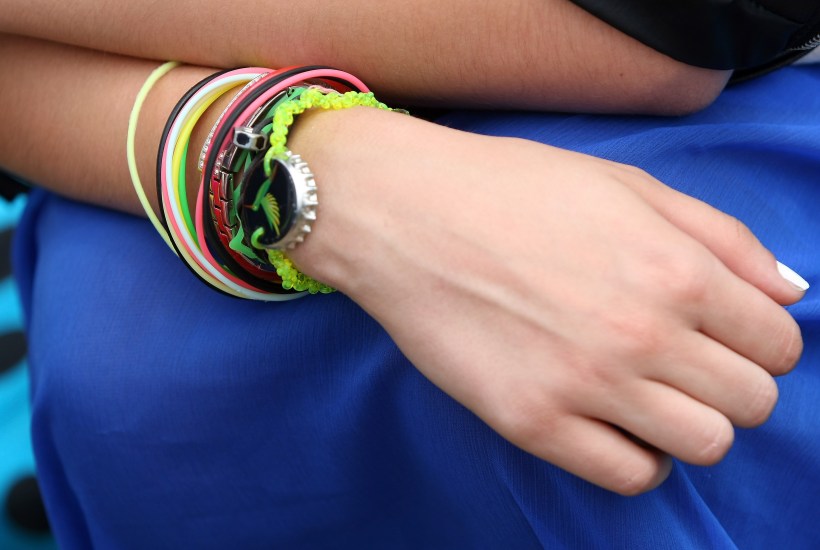Millennials have been sold a lie. We were told by our parents that we could be anything we wanted. Everyone tried to show us how important it was to be happy all the time. Barney the Dinosaur even sang “everyone’s special” to us. Of all the praise we received, only “the Incredibles” took the time to remind us that if everyone can be special; no one is.
In her book “Generation Me”, Jean Twenge references the fact that only one to two per cent of people born before 1915 experienced major depression at some stage in their life. The rate for Millennials currently stands at 15 per cent and most of us are only a third of the way through our lives. Students in 2007 were seven times more likely to be depressed than students from 1937. A Deloitte survey also revealed that only four per cent of Australian millennials believe they will be happier than their parents.
How is it that people who lived through two World Wars, the Great Depression and racial segregation managed to stay comparatively positive? Students on the other side of the millennium worry not about conscription, famine, disease or civil war yet they are seeking mental assistance in unprecedented numbers. Teachers must provide trigger warnings to avoid physically unsettling those who are upset by words. Schools now give out competition ribbons to everyone who shows up. The child who finishes last in a race receives greater adulation from onlookers than the winner.
As it turns out, Western education is a large part of the problem. Its architects have spawned an ugly child-centred system that prioritises comfort and neglects resilience. Teachers lack their former reverence and are incapable of confiscating phones or physically removing disruptive students without the threat of a lawsuit.
The policies of the schools themselves deliberately encourage pupils to be fearful of other people. At Fairfax Middle School all forms of physical touch are prohibited. Across the rest of Great Britain, several schools forbid taking photos of other students both on and off school grounds. Elsewhere, students play tug of peace instead of tug of war. Four-year-old Prince George recently discovered that Thomas’s Battersea doesn’t permit students to have a best friend. Instead of expecting pupils to develop a sense of acceptable behaviour, the modern solution is to prevent any potential conflict or discomfort from arising in the first place.
The way the education system at large deals with boys is particularly worrying and absurd. Boys are treated as girls with an attitude problem. As part of an attempt to feminise male students, boys are repeatedly medicated with brain altering drugs for being too boisterous. This often occurs in the absence of any long-term psychological treatment plans. The cosmetic quick-fix approach to the non-problem of boyish behaviour is incredibly discouraging and physically harmful to the development of our young men. Boys like to experiment with danger. In fact, playing on the edge of danger is what allows us to develop a sense of safety in the first place. It comes as no surprise then, that the leading cause of death in adolescent males aged 15-24 is suicide. Boys need an outlet for their aggression, their energy and their curiosity. Pretending such attributes are harmful and preventing our young men from exploring these things is physically and emotionally draining their life force.
Perhaps another explanation for millennial unhappiness lies in the chronic absence of unsupervised outdoor recreation opportunities. It comes as no surprise that only 20 per cent of Aussie kids aged 5-14 achieve the recommended amount of daily physical activity. By not encouraging our children to discover the external world, they turn to their devices and attempt to negotiate a digital path through it. Unfortunately, a lack of meaningful interaction and discovery in the physical world leads to immodest and risqué forms of online self-expression. A simple google search of the #Amberrosechallenge or the #Aftersexselfie demonstrates a need for validation and approval that clearly isn’t being met through interpersonal interaction.
The online world is a perversion of reality where increasingly superficial and deliberately ingratiating behaviours are both idealised and rewarded. Some studies show that teens spend up to a quarter of their day consuming digital media, while others contend that a majority do not log off social media while completing their homework.
It is interesting to note that a 50 per cent increase in female suicides between 2007 and 2015 also occurred at the same time as a 50 per cent rise in smartphone use. The US National Survey on Drug Use and Health also found that major depressive episodes among 12-17-year-olds increased 80 per cent post-2011. The abbreviated context of textual interaction has drastically diluted the depth of information we exchange person to person. It has also altered our ability to read facial cues and interpret the emotions of others. Our environment is now one of constant distraction and online escapism that encourages withdrawal through a false sense of connectedness.
On the off chance a millennial might put a phone down to join their family for an evening of tv, the content they are subjected to is equally vacuous and unfulfilling. Modern tv is a deliberately contrived celebration of the lives of mediocre people. Cooking isn’t exciting, it isn’t a competition, it is a chore and yet it passes off as entertainment. Apparently watching people embarrassingly over-dramatize their reactions to clips makes Gogglebox worth watching. Then, of course, come the talent shows which are more about someone’s traumatic backstory and judges losing their minds at anyone with a vocal range greater than one octave.
One thing all modern shows have in common is that they overplay emotion. People grow up watching these shows and become unhappy when they realise life isn’t so exciting and that others don’t actually care about what they do behind closed doors. It makes no sense that millennials spend a quarter of their waking lives watching unremarkable people struggle with theirs.
Western millennials are living in the safest locations during the least violent period in human history. Because many struggle to distinguish reality from curated appearances, we are often left to pursue materialistic and superficial ideals that leave us unfulfilled and unsatisfied. It is embarrassing to witness how a once great civilization has led its youth down such a self-destructive path. It is not ok that 35.4 per cent of deaths among 15-24-year-olds arise from self-harm. It is disturbing to see a quarter of Western women self-harming before the age of 24. Our culture has made the fatal error of over-emphasising happiness as if it were the only authentic emotion to feel. It is no wonder that people fall in a heap as soon as they get sad because they are constantly bombarded with images of beautiful people having busy, important lives.
By dismantling the roles and structures that have served society for centuries we have made it increasingly difficult for millennials to find their place in the world. In trying to prolong youth, we have abandoned a sense of purpose and fulfilment. By moving children off the street and behind a screen we have initiated a rise in social isolation and ineptitude. Telling our children that they can be anything ensures that they will set their sites on nothing. The last thing our youth need is insecurity about the world around them. By replacing the structured, traditional and predictable with a chaotic, indeterminate virtual reality, the architects of society have exacerbated the anxieties of an already fragile and privileged generation.
Got something to add? Join the discussion and comment below.
Got something to add? Join the discussion and comment below.
Get 10 issues for just $10
Subscribe to The Spectator Australia today for the next 10 magazine issues, plus full online access, for just $10.


























Comments
Don't miss out
Join the conversation with other Spectator Australia readers. Subscribe to leave a comment.
SUBSCRIBEAlready a subscriber? Log in